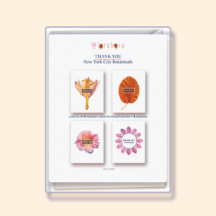IDEAS + GOODS for ARTISTS & OTHER CREATIVE OUTSIDERS


LATE BLOOMERS KNOW
Learning how to live takes a whole life, and, which may surprise you more, it takes a whole life to learn how to die.
SENECA
On The Shortness of life
PHOTO:
81st St Station.,
Museum of Natural History
2018, New York City.
In the late 1800s, a 20-something amateur writer establishes his habit, managing to get published short works of fiction, tales of mystery, and the occasional theatre review. One of his more favorable reviews lands him a meeting with Henry Irving, then the most famous stage actor of his time. Irving owns the Lyceum Theatre, and by using his skill—the captivating, hypnotic power of the actor's craft—convinces our writer to take the job of running it. The writer will have this job for almost 30 years, during which he will eventually write a horror fiction novel—a detailed work of catharsis—hinting at his decades of servitude, of tolerating the pettiness, vanity and soul-sucking plight under the thumb of a narcissist boss.
The novel will have been well received. Named “Dracula”, it will have put Bram Stoker, now a 52-year old writer, on the map as an instant sensation.
Stoker is one among many so-called “late bloomers” who quietly arrived at success much later than others in the field. In doing so his example attacked two of the pervasive ideas about the pursuit of a worthy artistic goal—whether “instant success” is ever instant, or that there’s a time limit to pursuing success.
A few months ago over a coffee with an art school friend, I listened to him talk about how he had to make some serious decisions because things weren't going as planned. He had put the brakes on making his work and slowly building a business around it. He decided to take a job working as an administrator at a hospital. He figured at his age it’s too late already: “If it's not happening, it's not happening. If you don’t have it by now, you should probably start getting serious.” He had just turned 40.
At a time in history when the average lifespan in modern society is longer than ever before, my friend's perspective is a sharp contrast to, for example, Leonard Cohen who became serious about his art while in his 30s, or Edward Hopper who began to get noticed in his 40s. Bonnie Raitt was in her 40s, as was Toni Morrison. Dr. Seuss was in his early 40s when—after being rejected by publishers over 20 times—started on the course to becoming a household name. Composer Philip Glass, and his then partner Steve Reich had a moving company together well into their 30s before they started to make an impression anywhere. These people are called “late bloomers”: creative people whose life's work took off when most people might have given up or dialed down their pursuit.
The term “late bloomer” begins to appear in 20th Century parlance and our usage of it typically presupposes a couple of beliefs. First, whether we know it or not, we quietly subscribe to “The Timeline", the notion that a person will begin to be optimally productive in their 20s, or 30s at the latest. By the time they are in their 40s, if their work is valuable and needed, they'll “know”, that is, they will have established enough traction in their field to reap the rewards of a career.
Then, secondly, is the idea of a career, which requires a few unspoken suppositions. Today, most of us carry around a mix of skills that we might eventually apply toward putting food on the table and paying a mortgage if all goes well. We agree to trade skill and time, to sit in artificially-lit concrete boxes up in the sky breathing shared air. We agree to curtail the essence of our personality, and instead flatten our persona to exchanging safe pleasantries while attempting to focus on what we’re paid to do. We'll do this for the majority of our days or years when, on the other side of the pane(pain?) is often a beautiful day outside. On occasion, we quietly realize we would not be here if we had a choice.
A career requires volition, agency, a sense of investment of your self—the sum of your perspective—into the work. Most people don't have a career, they have a job that brings the basic fulfillment of securing basic needs. Mileages vary—some jobs might be more lucrative, or offer more control over the people you surround yourself with. Others might require that you give more time for less return. But ultimately, the job is there to meet your basic needs and the ability to replenish your willingness to stick around, comply, and give more of your self to the job.
The idea of a career—and the expected productivity of a careerist—are industrial age assumptions about the “lifespan” of the worker. Typically the worker in an organization trades time for money, producing something of value for the organization in the bargain. The prime moment for you as a worker is in your 20s and 30s, when other workers can depend on your efficiency and productivity, and you're at the peak of your powers. In your 40s, you've hopefully arrived at a station ready to capitalize on the merits of your productivity until you retire.
A typical corporate occupation, however, can't claim to provide a person any true sense of autonomy or purpose. These qualities are intrinsically arrived upon, and often by the time you've entered the workforce, you're led to believe there's no time to think about those aspects of your spiritual life. Creative people understand how people are hammered by an industrial education system into becoming a good worker rather than a better self. You're guided to regard those latter needs—for true, resolved, actualized identity—as a luxury at best, and unattainable nonsense at worse. Most of us will have started out with this kind of modern education, but the creative people who stand a chance of living and thriving with a creative life teach themselves to operate with different standards and timetable. With a few consistent qualities, they're able to get past barriers that would normally derail the less determined among us .
Curiosity is the beginning of a lifetime asking the “right questions”, and it becomes a way around the invisible forces that will shrink you to be simply functional. If you were ever that kid who “asked too many questions”, you were doing something right: exercising a muscle that would eventually help give your life purpose, or at least a legitimate pursuit of meaning on your own terms. If you weren't that kid, then you should know it's a learnable skill, and worth learning.
The second trait that shows up in creative people across their lifestyle is Focus. Regardless of your field of choice, there is a discipline to sitting with a problem and developing an original creative voice from it. Focus need not be just on one piece of art at a time, or a look, style or medium. Instead, Focus sometimes shows up as a facet of research—asking the same question in different circumstances, and taking notes on what works and what doesn't. It's a long-term approach to getting clarity by drilling deeper. You'll have to bring attention and energy past the first layer of noise and public opinion to get to the important, relevant stuff. You'll also need stubbornness, which is typically defined as an unwillingness to budge or conform. Framed in the context of a deliberate pursuit, it becomes “determination” and gets tacked on to biographies of successful people.
One last attribute is Patience. Simply put, you have to slow it down. You have to stop rushing to grand conclusions about meaning, and be patient. Things take time, often their own time. Family expectations have to be negotiated, friends have to be comforted, bills have to be paid, addictions managed, sacrifices made, and travel plans compromised. There's a whole life—and its variables and sufferings—that have to unfold before you have enough coverage around the block to understand something of life. But understanding that time is on your side, that you have the rest of your life to understand it might help you trust you can move forward without anxiety. Things take a different turn when you take that route, and it's when gratitude leaks into everything you're doing.
As for the people around you, some will celebrate how far you've come, and appreciate the hard work you've put into getting there. And there will also be the percentage of “close” people who “know you” who see you as an existential threat. This is simply because as you become more confident and gain traction in your own life and work, your very presence will make a few people question their own trajectory, the choices they have made and the life they live. Because without even trying, you're the one pointing out how you've taken on the adventure of Life, and they've been spectators to their own. And that realization can be difficult to swallow for some: you have the life they could have, if only they had the courage.
But count yourself lucky if you're a late-bloomer. We only call them “late bloomers” because it's how people—the majority—categorize those among us that don't arrive on a predictable schedule. If you've been working on yourself, realize that your biggest advantage is that you have a self to work on. Most people don't—they were stripped of any originality or curiosity by the time they graduated high school, if not before. They started to pay up, long before they were invoiced for a life of certainty and the shallow clarity that comes with it. You instead followed your own light down the end of a tunnel—small though it was—on your own adventure, and you've lived to tell the story. And you're just getting started.
It takes a while before you can step over inert bodies and go ahead with what you were trying to do.
JENNY HOLZER
the living series
//
Be Human Again.
©2018 SPECIALORBITS. ALL RIGHTS RESERVED




